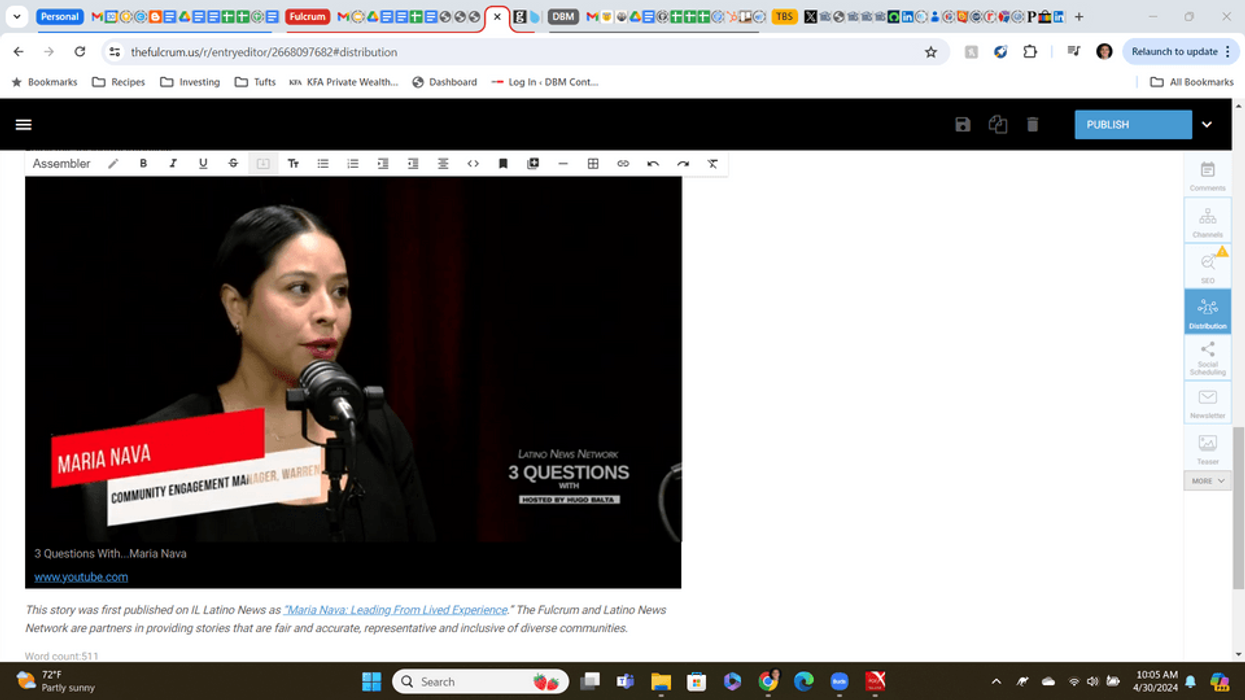We are proud to present “3 Questions With,” a public affairs series elevating the voices and visibility of matters most important to the Hispanic-Latino community by speaking with community and industry thought leaders on the social determinants of health and democracy. “3 Questions With” is co-produced by the Latino News Network and CAN- TV, Chicago’s hub for community-centric news, hyperlocal stories and educational resources.
In this episode, Maria Nava, the community engagement manager for the Warren-New Port Public Library, spoke with host Hugo Balta, publisher of Illinois Latino News.
Public libraries are an invaluable resource in any community. They provide access to knowledge, information, and entertainment for people of all ages and backgrounds. From books to digital resources, they offer a wide range of materials that educate, inspire and empower individuals. Public libraries play a critical role in fostering literacy, promoting lifelong learning, and enhancing community engagement.
In the interview Nava emphasized that partnerships are critical to the library’s success in serving the community. The Hispanic American Community Education and Services is one of those partners.
“One of the things that they do is focus on immigration, providing services like [Deferred Action for Childhood Arrivals] and how to apply to become a citizen,” she said. Nava explained how HACES brings its staff into WNPL with to lead bilingual workshops focused on legal, health and educational programs.
Nava is the co-founder of Future Leaders Alliance, a mentor group for students who need support and guidance as they pursue higher education. While working with the Round Lake School District, she encountered many Spanish-language-dominant parents struggling to get information.
“Parents want their kids on a better path; they want them to achieve a higher education. So, how do we help them with that?” Nava said, explaining how she and her sister started hosting workshops to demystify the process of getting resources to help families reach their educational goals. FLA aims to equip young individuals with the skills and confidence to become transformative leaders.
The Mexican native, who grew up in Lake County, Ill., also shared how her lived experiences have helped shape the work she leads. “It was a difficult upbringing. We were in a new country. We didn’t know the language. We didn’t know the culture. We didn’t know a lot,” she recalled.
Nava said that one of the hardest hurdles was not knowing people and where to go for help. “Like many immigrants, we lived in fear.”
Many of the initiatives Nava builds are drawn from her experiences of navigating a new country riddled with barriers for newcomers. “That’s one of the things that really drives me. When I go out into the community and meet a parent or a child … I see my parents, I see myself, I see my sister,” she said.
Enjoy this insightful interview.
3 Questions With...Maria Navawww.youtube.com
This story was first published on IL Latino News as “Maria Nava: Leading From Lived Experience.” The Fulcrum and Latino News Network are partners in providing stories that are fair and accurate, representative and inclusive of diverse communities.




















Trump & Hegseth gave Mark Kelly a huge 2028 gift